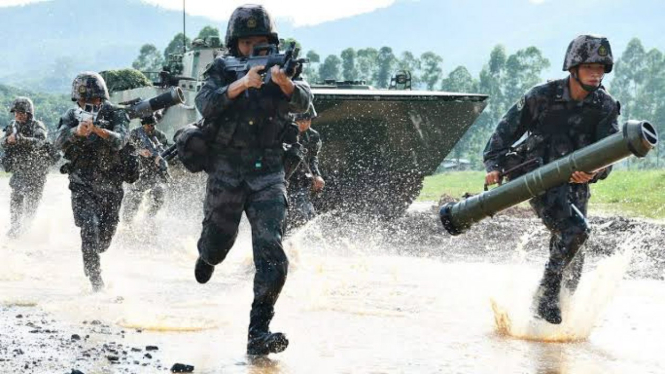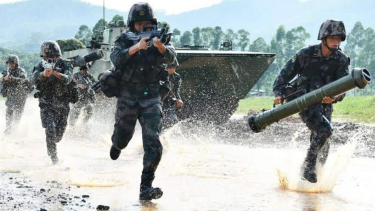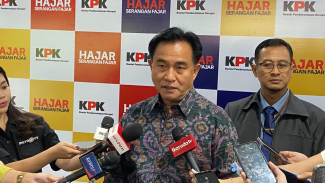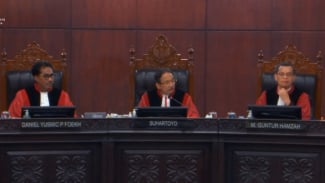The Impact of China’s Accelerated Military Modernization
- chinadaily.com.cn
VIVA – President Xi Jinping in his speech on October 16, 2022, expressed his determination to accelerate the military transformation process. So, by the 100th anniversary of the founding of the People's Liberation Army (TPR) in August 2021, China's armed forces will have become a world-class military.
"Southeast Asian countries, including Indonesia, need to be aware of the increasing military power of the People's Republic of China (PRC) in the next five years. This is because President Xi Jinping, who has just been re-elected as General Secretary of the Chinese Communist Party (CCP) for the period 2022-2027, is considered to have the ambition to make the Chinese military a world-class military faster than the original target," Chairman of the Forum Sinologi Indonesia, Johanes Herlijanto remarked.
Chairman of the Forum Sinologi Indonesia, Johanes Herlijanto
- Press Release
In the speech, Xi Jinping expressed his determination to accelerate the process of transforming China's military, so that by the 100th anniversary of the founding of the People's Liberation Army (TPR) in August 2027, China's armed forces will have become a world-class military.
It means that China's military modernization project is set to take place much faster than the one launched by Xi at the 19th CCP congress in 2017.
At that time, President Xi Jinping expressed his mission to fundamentally complete the modernization process of China's armed forces by 2035, so that by the middle of the 21st century, the Chinese military is predicted to have fully transformed into a world-class armed force.
In Johanes' point of view, Xi's determination seems very likely given the rapid development of the Chinese military lately, especially in terms of modernizing their defense equipment.
For example, their third aircraft carrier, the Fujian, was just inaugurated on June 22, 2022. The number of ships owned by the Chinese navy is equal to, if not exceeding, those owned by the United States Navy.
"A study published last September by a Washington-based research institute estimated that by the end of the 2020s, China's naval power will have increased by 40 percent. This does not include other forces," Johanes remarked.
The projected increase in China's military power above is feared to have an impact, both in the short and long term, on countries in Southeast Asia, including Indonesia. This is because, in the speech, Xi Jinping also underlined his commitment to improving capabilities to defend China's sovereignty, security, and development.
This commitment, accompanied by an increase in military power, has the potential to increase tensions in the South China Sea region, where there are territorial ownership disputes between China and several Southeast Asian countries. The dispute remains one of the unresolved security issues in the Asia-Pacific region.
China is also rumored to have fully militarized at least three of the islands it has built in disputed areas of the South China Sea. In 2015, President Xi promised that China would not militarize the islands.
But over time, in March 2022, the Chinese Ministry of Foreign Affairs stated that China has the right to build defense facilities in the area that China claims as Chinese property.
Johanes also argues that Indonesia also needs to be wary of the increase in military power accompanied by an emphasis on the commitment to defend China's sovereignty above.
This vigilance is necessary because, since the 1990s, China has unilaterally introduced 9-dash lines, one of which targets part of Indonesia's Exclusive Economic Zone (EEZ), and considers it its territory.
"Although China's claim to part of the waters that are now called the North Natuna Sea does not have a strong legal basis based on UNCLOS (United Nations Convention on the Law of the Sea), we still have to be vigilant considering that China seems to be trying to maintain its claim," Johanes stated.



























